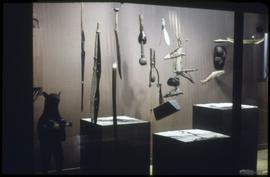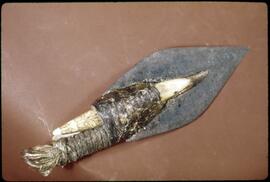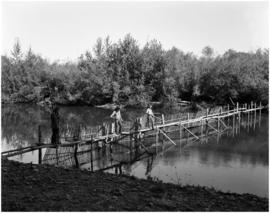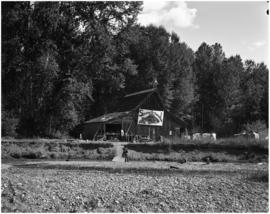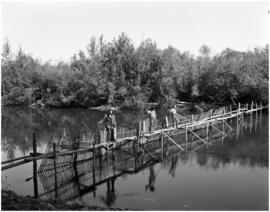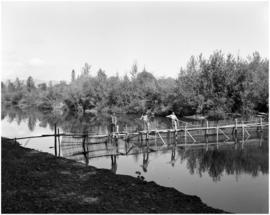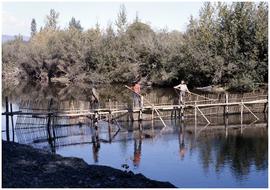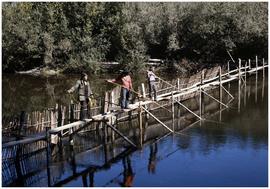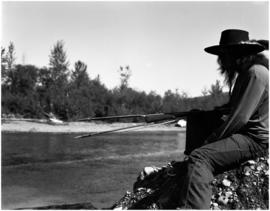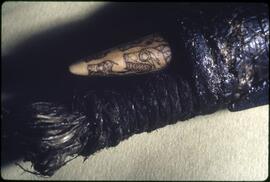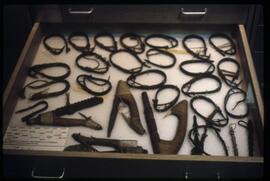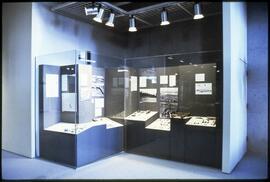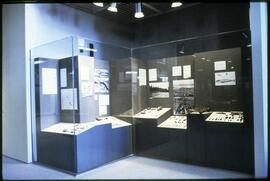Subseries consists of material produced by museum staff, among them Wilson Duff, Harry and Audrey Hawthorn, Marjorie Halpin, and Gloria Cranmer Webster. There is extensive material on Audrey Hawthorn’s Art of the Kwakiutl Indians. Included in this subseries are ca. 2000 photographs which were collected for possible use in this book. Photographs are numbered A38-A17206 with many numbers missing throughout. The majority of photographs are of wooden masks, but they are also of bowls, bentwood boxes, paddles, rattles, totem poles, talking sticks, headdresses and frontlets, wooden figures and miniatures, whistles, spoons, silver bracelets, argillite carvings, button blankets, chilkat blankets, cedar head and neck rings, woodworking tools, stone tools, and fish hooks. Other record forms included in this subseries include correspondence, notes and published materials.

